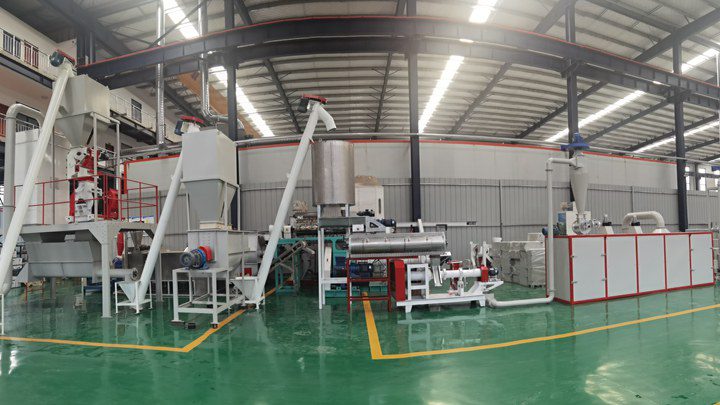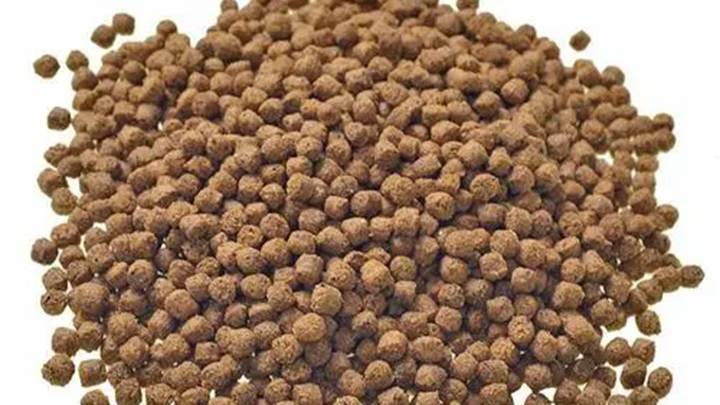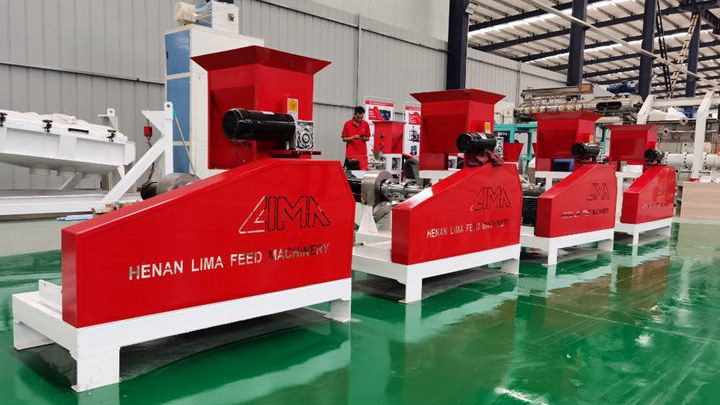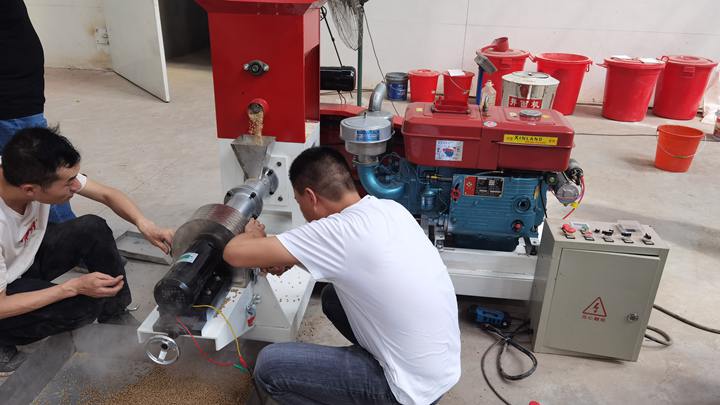Floating extruded fish feed has the advantages of convenient management, high nutritional value, good stability, and less water pollution. If you want to produce high-quality extruded feed, you need not only a high-quality fish pellet machine but also advanced floating fish feed processing technology for support. At present, the more advanced puffing process is attributed to high temperature, high pressure, high humidity, and short-time puffing, which is especially suitable for processing vegetable protein and starch raw materials for animal feed.
The fish food pellets produced by our fish food pellet extruder have been fully cooked and sterilized, so the fish is not easy to get sick after eating, and will not have any side effects. And according to customer needs, our fish food pellet machine can produce fish food pellets of different sizes by changing the mold to adapt to different sizes of fry. Fish food pellets are generally divided into 1-6mm, which can meet the size requirements of most fish fries.
Choosing the right fish pellet equipment can make your aquaculture more effective. The feed pellet processed by Lima floating fish feed pellet machine has the advantages of high hardness, smooth surface, complete internal cooking, and good palatability. We also have a variety of fish food pellet production line configurations for customers to choose from. Choosing the Lima fish food pellet machine allows you to obtain the best economic benefits.
Feed extruding production line supporting equipment
Generally speaking, the production of high-quality floating fish food pellets requires a complete production line to achieve the best pelleting results. Extruded feed generally depends on the specific breeding situation, and a complete set of production lines can be selected.
The whole floating fish feed production line includes the Pulverizer–Dust removal–Screw elevator–Feed mixer–Screw elevator–Feed extruder–Air conveyor–Crawler Dryer — Skirt conveyor — Cooler — Skirt conveyor — Oiler — Skirt conveyor — Packing machine — Sewing machine — Finished product.
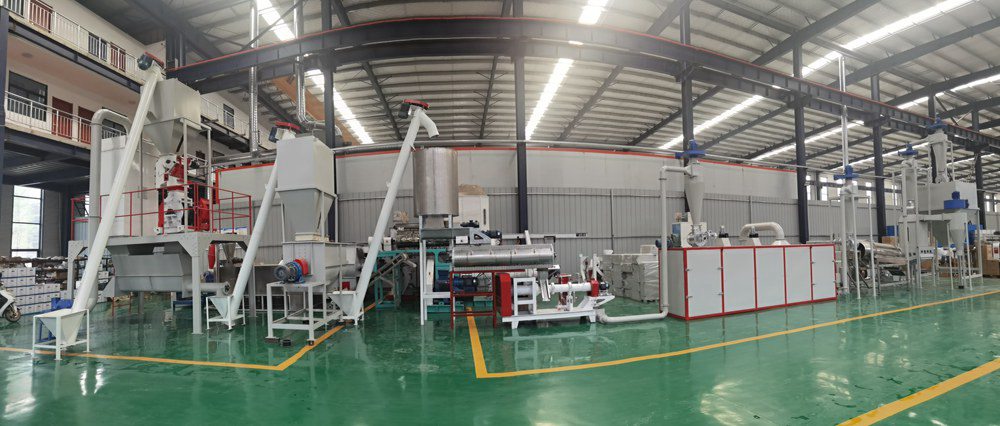
The matching of the production line is to save costs as much as possible and match the corresponding equipment according to the principle of local materials. Customers can choose the right machine according to their needs.
The production process of the floating fish feed
The floating fish feed extrusion process is generally divided into the material preparation stage, the internal heating and pressure boosting stage, and the final extrusion puffing stage.
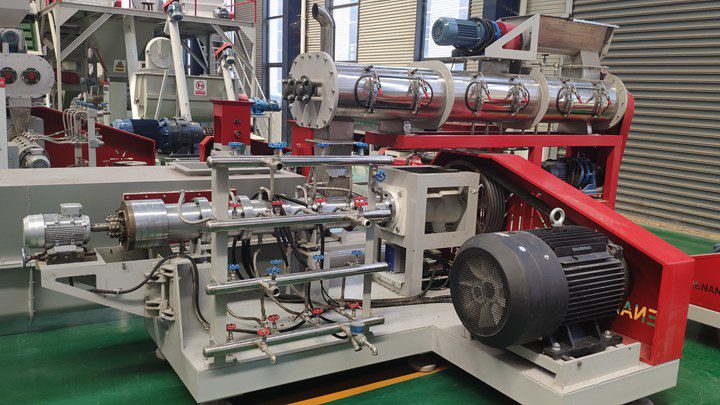
Materials preparation: First, The pulverized and mixed materials are sent to the conditioner to give certain moisture and temperature.
High temperature&Pressure stage: The quenched and tempered mixed material is sent into the puffing bin, and the material passes through different areas under the advancement of the high-speed rotating screw. Because of the friction, the temperature and pressure of the material gradually increase, and the pressure control lock between the areas further regulates the pressure.
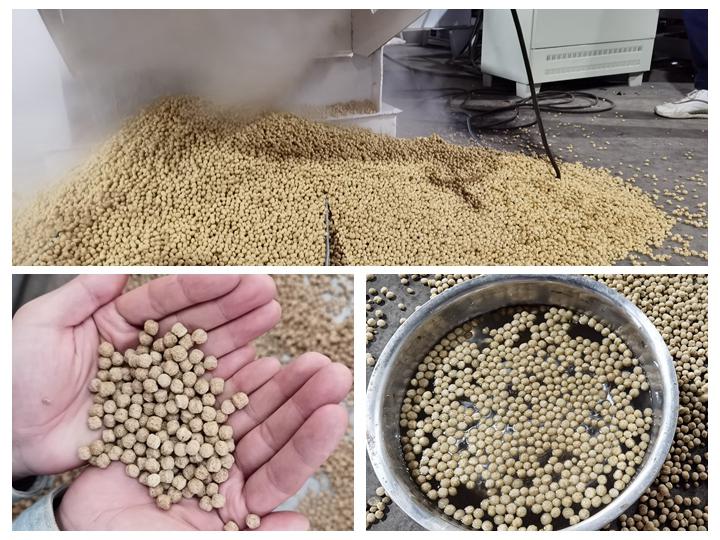
Extrusion stage: Extrusion temperature and pressure are at the conical spiral outlet of the extruder head, the temperature of the material rises to 135-160°C, and the pressure is 15-40 atmospheres. At this time, although the temperature of the water is higher than 100°C, the pressure is also much higher than the Atmospheric pressure, preventing the onset of the jubilant phenomenon.
When the material enters the atmospheric pressure environment through the ring die hole, the pressure suddenly decreases, the steam escapes quickly, and then the material expands strongly to get the final product- Floating fish feed pellets.
Extruder and floating fish feed processing technology
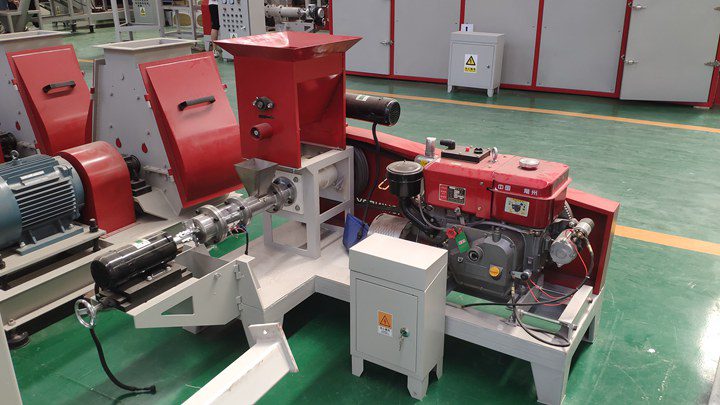
The floating fish extruder is used for the production of feeds for poultry, pets, aquatic products, etc. The output is uniform, the length can be adjusted, and the palatability is good. Among them, the extruder has been upgraded to strengthen the fuselage, increase the reinforcement of the feeding port, have a larger capacity, are wear-resistant and durable, and are easy to install and disassemble. While reducing costs, it also meets the production of feeds with different tastes such as pigs, cattle, sheep, rabbits, fish, and pets.
Processing requirements for different materials in the production of puffed materials
Under normal circumstances, the finer the various raw materials used for extruded feed are, the better, and strict aquaculture farmers meet their fineness requirements through ultra-fine grinding of an 80-mesh (0.18 mm aperture) sieve. The finer the particles of the raw material, the higher the digestibility, granulation fastness and water stability; in addition, the feed additives should be pre-mixed to make a 4%-5% mixture, and then mixed into the feed in order to maintain a certain uniformity.
Extruded material production process
Some heat-sensitive vitamins should be added to the extruded powder. First, steam or water at about 100 ° C is added to the powder to make the water content reach 25%, and then the hot powder is passed through the extruder barrel. Under the pressure of about 140 ℃ and 6 kg/m2, it is sent to the compression molding device, and then the pressure drops rapidly, and the evaporation of super hot water causes the expansion of the particles (granulation). After the expansion, the grease is immediately sprayed on the surface of the particles to ensure The granulation surface is smooth. At this time, the pellet feed is once again sent to the heating channel to evaporate, reducing its water content to less than 10%, and finally cooled to room temperature to form extruded pellet feed.
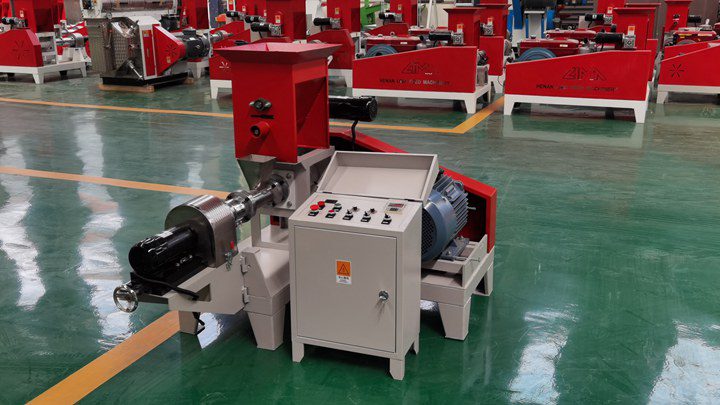
The mineral pre-powder can be added before the raw material is pulverized, and the vitamin pre-powder should be added after the raw material is pulverized and mixed. The purpose of this is to reduce the loss of vitamins during processing and heating. The particle size should generally be 1-2 mm, which is convenient for fish and shrimp to eat, otherwise, it will cause waste due to poor palatability of the feed.
Lima feed machinery has been working in the feed farming industry for more than ten years, as the professional manufacturer and exporter of feed equipment. We specialize in the production of fish feed extruders, poultry feed pellet machines, and corresponding production lines. If you have any questions about the feed pellet industry, please feel free to contact us.

